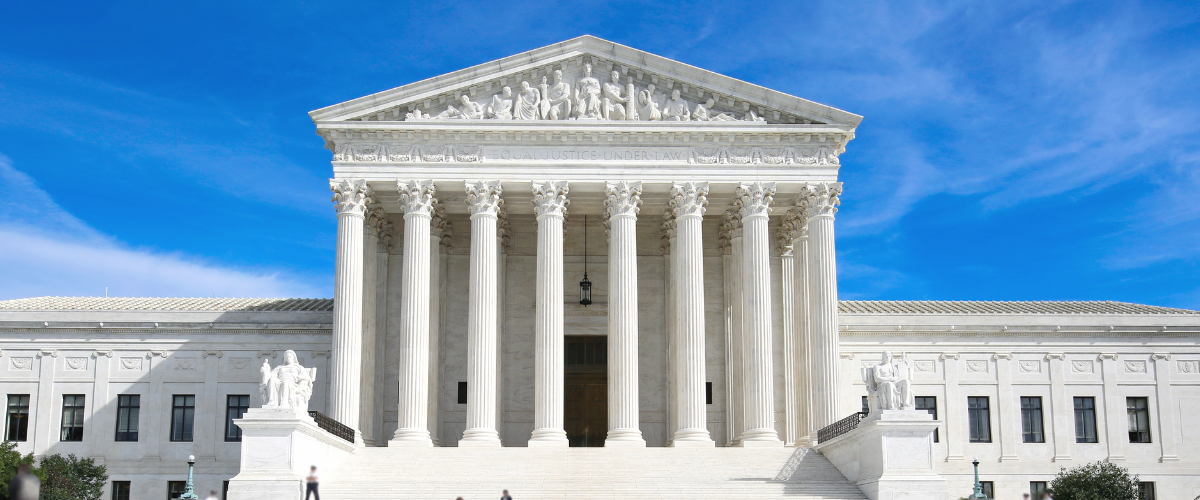
U.S. Supreme Court Upholds ICWA
June 15, 2023
In a 7-2 ruling announced Thursday, The United States Supreme Court upheld the Indian Child Welfare Act (ICWA), which prioritizes placing Native American children with Native families or Tribes in child custody proceedings. Attorney General Sean D. Reyes, who co-signed an Amicus brief to the Court in support of ICWA, issued the following statement:
“The future of our Native American nations relies upon their youth learning and integrating their people’s proud history, traditions, and culture within our broader society. ICWA accomplishes this while still providing needed protections to indigenous children – especially in Utah. I was pleased to work in a bipartisan effort with sister states throughout this process, and I’m grateful for the justices on the U.S. Supreme Court who supported our arguments and upheld this worthy law.”
ICWA is a 45-year-old federal law that furthers the best interests of Native American children and protects the sovereignty of Indian tribes by preserving children’s connections to their tribal heritage. It was first enacted in 1978 as a response to a history of culturally insensitive and ignorant removal of Indian children from their birth families.
ICWA’s purpose is to “protect the best interests of Indian children and promote the stability and security of Indian tribes and families by establishing minimum Federal standards” for child welfare proceedings involving Native American children.
This case originated in 2018 when a federal judge for the United States District Court for the Northern District of Texas Fort Worth Division ruled that ICWA was unconstitutional. This order was appealed to the U.S. Court of Appeals for the Fifth Circuit, which overruled the lower court’s opinion in parts, but allowed aspects to remain “unconstitutional” (mostly pertaining to requirements for state agencies). The U.S. Supreme Court heard arguments on November 9, 2022.
Justice Barrett’s opinion rejected “all of the petitioner’s challenges to the statute, some on the merits and others for lack of standing.” The Court declined “to disturb the Fifth Circuit’s conclusion that ICWA is consistent with Congress’s Article I authority, and it also ruled that the “Petitioners’ anticommandeering challenges on three categories of ICWA provisions are rejected.” The seven justices also highlighted that no party in the case had standing to raise the merits of two other claims from the petitioners’ – “an equal protection challenge to ICWA’s placement preferences and a non-delegation challenge to §1915(c), the provision allowing tribes to alter the placement preferences.”
Utah was joined by the States of California, Arizona, Colorado, Connecticut, Idaho, Illinois, Iowa, Maine, Massachusetts, Michigan, Minnesota, Nevada, New Jersey, New Mexico, New York, North Carolina, Oregon, Pennsylvania, Rhode Island, South Dakota, Washington, Wisconsin, and the District of Columbia on the Amicus Brief to the U.S. Supreme Court on August 19, 2022, which asked the high court to reject the claims from the plaintiffs “in their entirety.” The attorneys general wrote that this brief is comprised of “small states and large ones, from every corner of our Nation, with a wide range of political beliefs and policy preferences,” adding that they “all agree that ICWA is a critical – and constitutionally valid – a framework for managing state-tribal relations, protecting the rights of Indian children, and preventing the unwarranted displacement of Indian children from their families and communities.”
Read the opinion from the U.S. Supreme Court.
Read the Amicus Brief from States supporting the Federal and Tribal partners.
Read the 2022 op-ed from Attorney General Reyes on why Utah supports the Indian Child Welfare Act.
